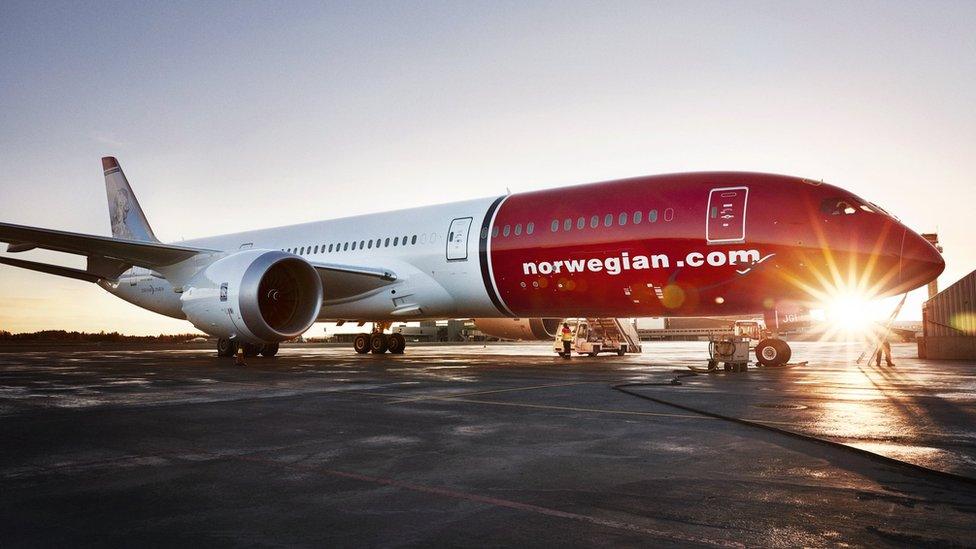Norwegian Air chief executive Bjørn Kjos steps down
- Published
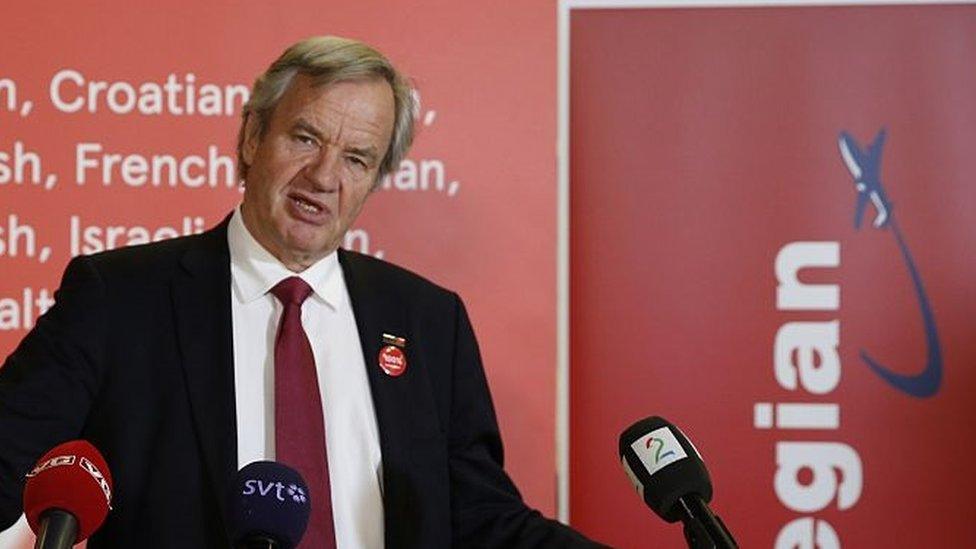
The chief executive and co-founder of Norwegian Air Shuttle, Bjørn Kjos, has stepped down after 17 years in charge at the airline.
Under the leadership of Mr Kjos, aged 72, Norwegian Air developed from a small domestic airline into Europe's third biggest low-cost carrier.
It also broke into the transatlantic market with low fares.
However, the firm has struggled to make profits and has also been hit by the grounding of the Boeing 737 Max plane.
Norwegian has 18 of the aircraft and on Thursday said that it did not expect them to return to service until October, later than its previous estimate of August.
The airline said the grounding could cost as much as 700m Norwegian kroner (£65m; $82m) this year, and could also undo its plan to return to profitability.
The 737 Max fleet of jets was grounded after two crashes, the first a Lion Air flight which crashed into the sea off Jakarta last year, and the second an Ethiopian Airlines' flight which crashed shortly after take off from Addis Ababa in March. In total 346 people were killed.
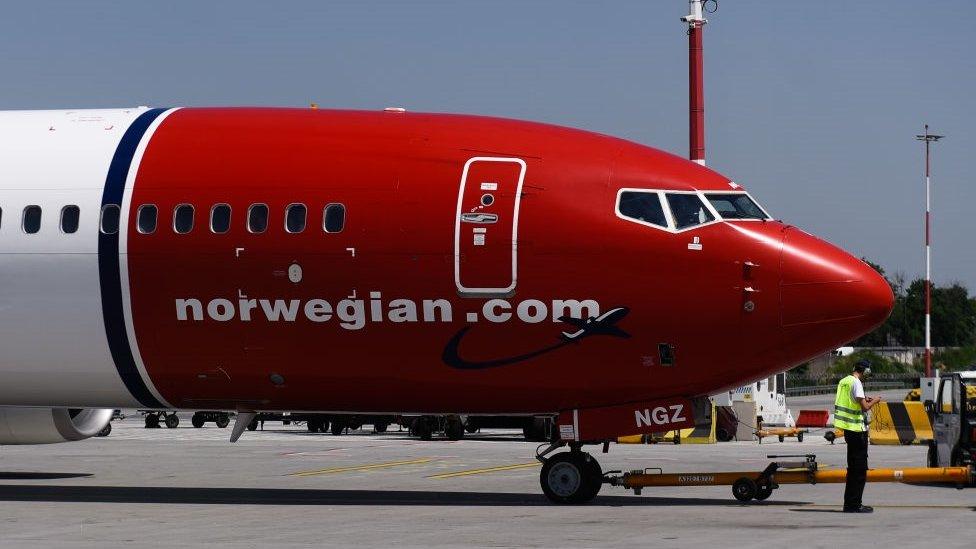
Norwegian Air has 18 Boeing 737 Max 8 aircraft
Norwegian's low fares have allowed it to grow rapidly. Last year it launched 35 new routes, carried more than 37 million passengers and added 2,000 staff.
Its big innovation has been to operate low-cost long-haul flights between the UK and the US, which it started in 2014. It now flies to 12 US destinations from London's Gatwick airport.
It has become the biggest international carrier to serve the New York City area, carrying more passengers there than British Airways, Air Canada or Lufthansa, according to figures from the Port Authority of New York & New Jersey., external
However, that growth has come at the expense of profits.
The airline lost 1.45bn kroner last year, which it blamed on fuel costs, tough competition and issues with engines on its Dreamliner aircraft.
Strategy shift
In March, to shore up its finances, Norwegian raised 1.3bn kroner through a share sale and also sold some aircraft.
Mr Kjos, a former fighter pilot, has pledged to slow the airline's growth and focus on profitability this year.
He said that strategy was reflected in the company's second-quarter results, released earlier on Thursday, which show a net profit of 82.8m kroner.
"Norwegian's Q2 results show that we are delivering on our strategy of moving from growth to profitability," he said.
"Despite operational issues outside of our control, like the grounding of our 737 Max fleet, we are delivering the highest second quarter operating revenue in the history of Norwegian."

Analysis
Theo Leggett, BBC international business correspondent
Bjørn Kjos was one of the founders of the company. As the man in the pilot's seat since 2002, he was also the driving force behind its expansion from a tiny regional carrier to become a major player in Europe's low-cost market. He also led the move into the long-haul market, using a new generation of efficient aircraft such as the Boeing 787 Dreamliner to offer cheap flights to the US, South America and even Thailand.
There was no shortage of passengers, but all of this growth came at a cost. The airline has billions of dollars' worth of debt and, over the past couple of years, has racked up hefty losses. In March, it was forced to sell new shares in order to raise hundreds of millions of pounds in new funding. It's also had to cut routes and sell some planes.
The signs are that this radical action is starting to take effect, giving Mr Kjos the chance to bow out on a positive note. A new leader can now be appointed to guide the company, as it attempts to turn market share into sustainable profits. It won't be easy. As the likes of Monarch, Flybe and Air Berlin have shown, the low-cost market is a harsh environment, where only the fittest survive.
Of course, there is another option. A new chief executive might be more willing than Mr Kjos to consider a takeover approach - from British Airways' parent IAG, for example. But let's not forget that the outgoing chief executive will remain a powerful influence within the company, both through the shareholding of his company, HBK Holding, but also through his new role as an adviser.

- Published27 June 2019
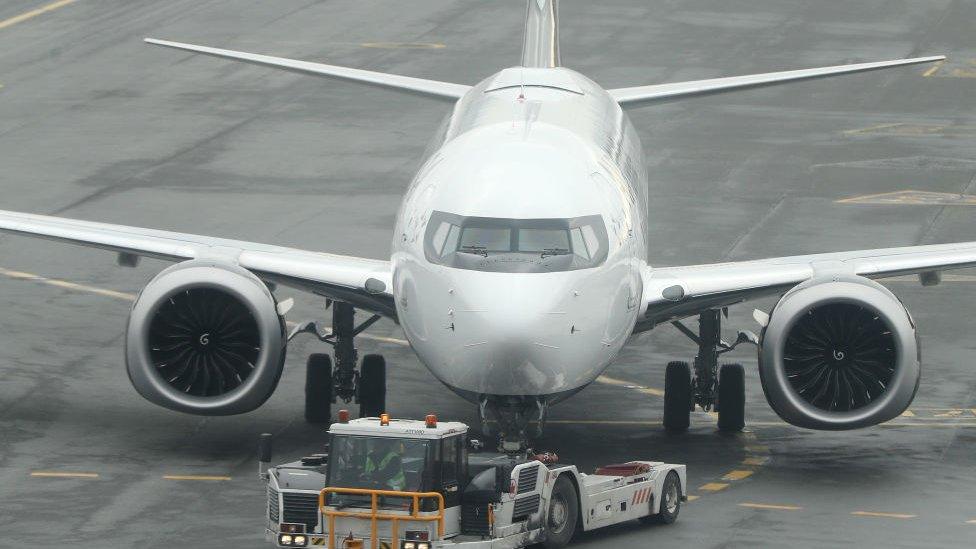
- Published3 July 2019
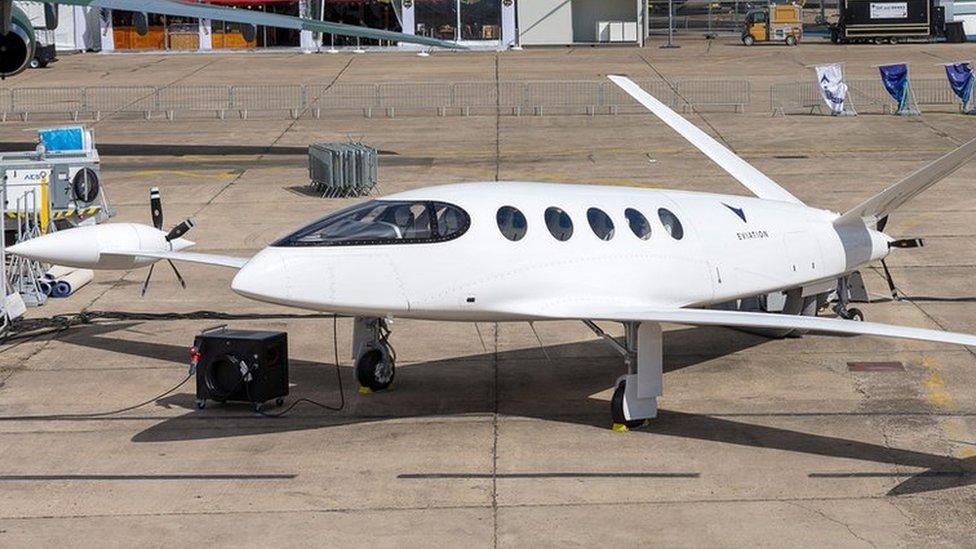
- Published20 May 2019
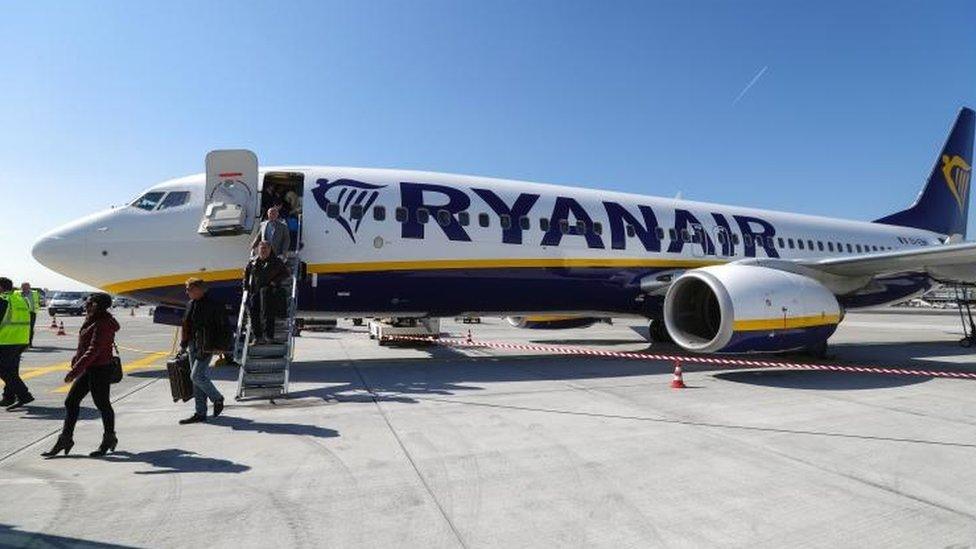
- Published29 January 2019
